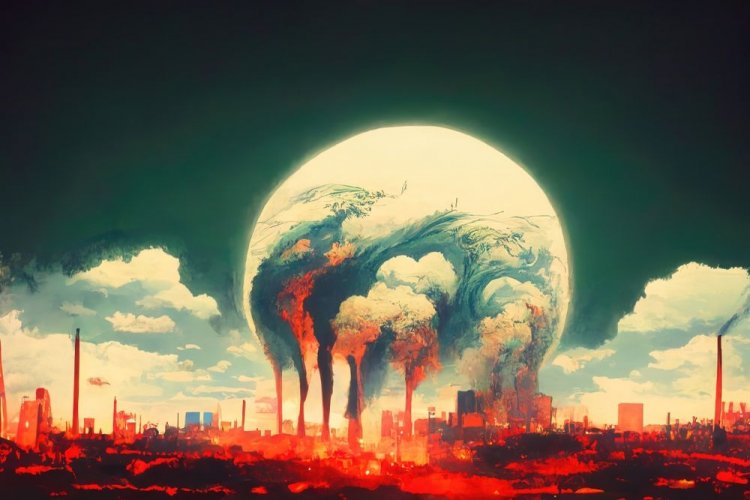A new study by the UN's Intergovernmental Panel on Climate Change (IPCC) found that the world will exceed the warming limit by 1.5°C by the early 2030s, and reach 3.2°C by 2100.
Beyond this threshold, climate disasters will become so extreme that people will not be able to adapt and the main systems of the planet will be fundamentally, irrevocably changed, reports The Washington Post.
Heat waves, famine and infectious diseases could claim millions of lives by the end of the century, it said. Global emissions continue to rise, and current efforts to reduce them are woefully inadequate to prevent climate catastrophe.
UN Secretary-General António Guterres said that developed countries should accelerate environmental efforts and achieve climate neutrality by 2040, that is, 10 years earlier. Developing economies, particularly China and India, must also accelerate their efforts to reduce emissions.
He emphasized that few countries intend to meet their climate commitments, and the poorest countries are already disproportionately affected by climate disasters.
The study emphasized that the world has enough knowledge, finance and tools to limit global warming. However, decades of ignoring scientific warnings and procrastinating on climate efforts are leaving less and less room for averting catastrophe.
It is noted that humanity has already fundamentally and irreversibly changed the Earth's system. Emissions from burning fossil fuels and other activities have increased the global average temperature by at least 1.1°C. Even the richest countries will suffer from climate change.
"If countries do not adopt new environmental policies and continue those that are already in place, the global average temperature could rise by 3.2°C by the end of the century," the report says.
The study found that children will see sea levels rise by a meter in their lifetime, the extinction of hundreds of species and the migration of millions of people from places where they can no longer survive. If the world stays on its current warming path, global flood damage will be 4 times greater than if humans limit temperature rise to 1.5°C.
The authors emphasized that, despite scientists' warnings, more than 40% of total carbon emissions have occurred since 1990, when the IPCC published its first study on the dangerous consequences of uncontrolled warming. Now:
- governments continue to subsidize the use of fossil fuels;
- banks and businesses invest far more in polluting industries than in climate solutions;
- The richest 10% of people cause 3 times more pollution than the poorest 50% of the population.
The researchers emphasized that now only deep, rapid and immediate efforts in all aspects of society, combined with technologies for removing carbon from the atmosphere, will be able to avert the catastrophe. But few institutions act quickly enough. Example:
- at the 2022 COP27 climate summit, a resolution on the gradual reduction of the use of oil, gas and coal was not adopted;
- in 2022, China approved the largest expansion of coal-fired power plants since 2015;
- amid soaring profits, major oil companies are abandoning their green energy initiatives and increasing investments in fossil fuels, etc.
The IPCC noted that failure to act now will not only condemn humanity to a hotter planet. Future generations will not be able to cope with the changed environment. Temperatures will be too hot to grow many staple crops. Droughts will become so severe that even the most stringent water conservation measures will not be able to compensate for them.
It is noted that the world still has a chance to limit warming to 1.6-1.7°C.
Earlier, EcoPolitic wrote, that Mohamed Nasr, one of the organizers of the 2022 COP27 climate summit in Egypt, stated that limiting global warming to 1.5°C cannot be achieved at current levels of greenhouse gas emissions.
As EcoPolitic previously reported, according to the International Energy Agency, global carbon emissions in 2022 have increased to more than 36.8 billion metric tons, i.e. a new record value, which brings the world to a dangerous level of global warming.





